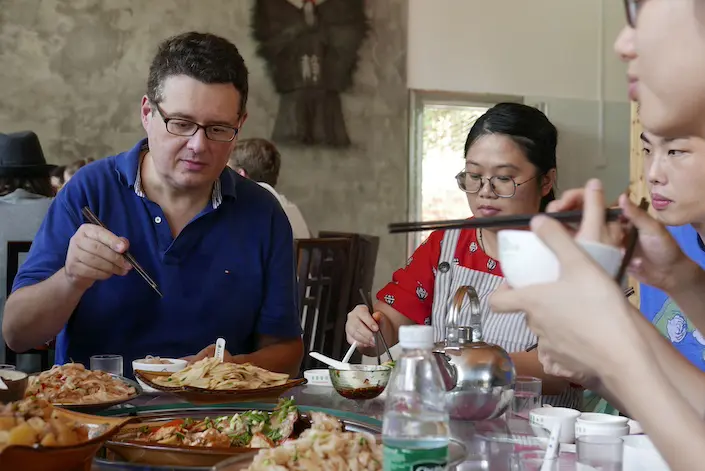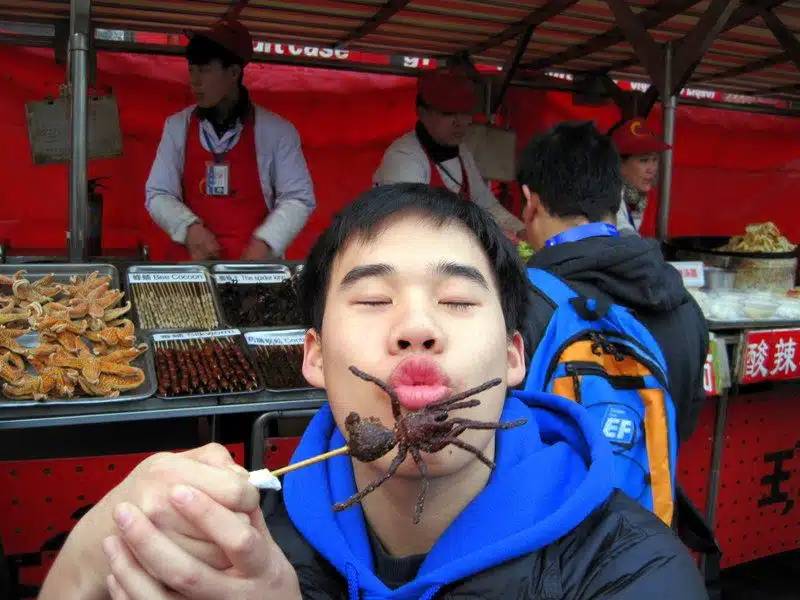20 Good Ways To Discover China Culinary Delights
20 Good Ways To Discover China Culinary Delights
Blog Article
Top 10 Tips To Avoid copyright Items When You Shop In China
1. Be aware of high-risk items Watches, bags, watches, electronics and designer clothing are frequently counterfeited. They should be scrutinized cautiously.Pro: Focuses your attention to copyright products.Cons: Can cause suspicions about the authenticity of products without enough knowledge.
2. Research authentic Product DetailsChoose a retailer you are familiar with. Learn the particulars of their brand's logo, their stitching and the materials they use.This app will help you to identify fakes and real products.Con: Time-intensive, especially when you're not acquainted with.
3. Trusted StoresTips: When shopping for expensive items be sure to buy from authentic brand stores or malls such as Beijing's China World Mall or Shanghai's Plaza 66.Pro: The item is authentic and comes with receipts.Cons: Prices could be higher than those at street markets and small shops.
4. Make sure you have checked labels and tagsCheck for low quality materials, misspellings or inconsistent fonts on packaging or tags.Pro: A fast way to identify poorly made counterfeits.Contra: Counterfeits of high quality are often able to closely mimic authentic ones, making their it difficult to identify.
5. Beware "Too Good to Be True Prices"Tips: Exceptionally low prices for expensive items are a red flag. Rarely, luxury items sell at prices much lower than the retail price.Pro: Helps you avoid obvious scams.Con: Some vendors use moderate prices to make counterfeits look more convincing.
6. Request Certificates of AuthenticityTip: Get authentic documents for antiques, jade and branded goods.Pro: Increased confidence in your purchase.Con: Since certificates can be forgeries This method of authentication is not completely foolproof.
7. Test before BuyingHave high-value electronics and other items tested before making the purchase.Pro: It allows you to confirm quality and functionality.Cons: The seller might not permit testing, or the tests could be superficial.
8. Beware of buying antiques without knowing the best way to use them.Tips: Antiques that are authentic require a lot of knowledge or the verification of an expert. It is best to avoid purchasing antiques unless they are authentic.Pro: Reduces the risk of being scammed with replicas or counterfeits.Cons: You might be missing out on visually appealing, yet unauthentic ornaments.
9. Make use of an Local Guide you can TrustTips: A local guide in the region or a friend who is familiar with the market will aid in identifying genuine vendors and detect counterfeits.Pro: It will save you time and decreases the chance of being a victim when shopping in markets that are not familiar to you.Con: Guides can expect a fee or commission. This can add to the cost of your trip.
10. Don't be afraid to trust your instinctsRefrain from purchasing if you believe that something isn't right regardless of whether it's the customer's attitude or the quality of the product or the price.Pro: Stops you from making regrettable purchases.The downside is that you could miss out on a good bargain if you're too preoccupied.
Pros of Avoiding copyright GoodsDurability. Authentic products have a longer shelf life and are better for the price.You can rest assured that you will not be scammed or swindled.Legal Safety: Some countries penalize travelers for bringing copyright back.Supporting authentic products is important in ensuring ethical business methods.The downsides of avoiding fake GoodsGenuine goods tend to be more expensive.Access is limited: Certain authentic items may not be sold in small stores.The counterfeits can be high-quality and are a great bargain.If you follow these guidelines by following these tips, you'll be able to be confident when shopping in China and make educated decisions regarding authentic or fake products. Check out the recommended Chinese cuisine you need to try for blog recommendations including experience traditional Chinese food, culinary experiences across China, explore the best local eats in China, China culinary hotspots, savoring the best of Chinese cuisine, China food heritage revealed, explore the best local eats in China, China flavorful food culture, Chinese cuisine you need to try, China culinary heritage and more.
Tips To Tipping The Top 10 Tips For Tipping China
1. Tip Tipping: Tip: In China, tipping is not customary.It is affordable and adheres to cultural norms.Con: Could be strange for travelers accustomed to tipping their home countries.
2. Check for Service chargesTipp: Many upscale restaurants and hotels include an additional service charge (10-15 10%) on the bill. This makes tipping unnecessary.There's no reason to add a tip or calculate.Con: Sometimes service charges aren't always clearly stated.
3. Please only use this tip only when it is appropriate.Tip: In touristy areas or hotels with international standards, tipping may be expected, especially by tour guides, drivers, or hotel staff.Pro: Even a tiny gesture can express gratitude for outstanding services.Cons: There may be some confusion about the rightness of tipping.
4. Give Tips in a discreet mannerIt is best to be gentle in your gesture to avoid any awkwardness.Pro: Avoids drawing unwanted attention or embarrassment.Pros: A few people may refuse to give you a tip and this can create awkward situations.
5. Pay cash for tippingTip: If you feel tipping is appropriate, consider using cash instead of adding it to the bill as many payment systems in China don't have a tipping option.Pros: Cash payment is accepted worldwide and are simple.Con: You have to carry small denominations which may be a hassle.
6. Tip in Tourist-Focused BusinessesTips: In places that are frequented by Western tourists, tipping might be expected or appreciated, such as at international restaurants, or during guided tours.Pro: It is in line with the expectations of service providers that are comfortable with Western practices.Con: It encourages a gradual shift towards tipping, something that isn't needed in societies in which it has been practiced for a long time.
7. Avoid Tipping Taxi DriversTip: Tipping taxi drivers is uncommon; instead, round up the cost to make it easier for you if needed.Pro keeps you on track with local customs while displaying your appreciation for the local community.Con: In non-touristy areas, rounding up can be interpreted as an offer to tip.
8. Don't forget to give your tour guides a tipTips: For private or group tours, tipping the driver and guide is a common practice particularly in cities such as Beijing or Shanghai. A modest amount (e.g. 50 to 100 yuan) is greatly appreciated.Pro: Good service is rewarded.Cons: Expectations for future travellers to tip higher.
9. Avoid Over-TippingIt is possible to give a small amount (between 5 to 10 percent). Tipping a large amount is usually seen as being over- or excessively generous.Pro: Avoids offending locals or overspending unnecessarily.Cons: Reserving your tipping discretion is uncomfortable for people who have a habit of giving generously.
10. Research Ahead of TimeTip: Learn about specific tipping practices in the area or establishment before arriving. Certain provinces, businesses or other establishments catering to foreigners might have different standards.You can easily adapt to the local culture.Con: You have to do some research on each place or place.
Positive aspects of tipping practices in ChinaCost savings: Lower overall expenses because you don't need to tip.Cultural Adaptation: Harmonization with traditional practices and fostering of respect and integration.Simplicity Eliminates the need to carry cash around or do calculations.Focus on Service - Encourages service providers to not make a fuss, but to instead be focused on the high-quality of their services.Pros and Cons of Tipping ChinaTravelers who are accustomed to tipping can find it difficult to adjust.Unfortunate Situations: Giving an inappropriate tip could cause some discomfort or confusion.Changes in expectations regarding tipping: Tipping in certain tourist areas has led to inconsistent practices.Unappreciated Gratitude: Tipping is a way for some travelers to show gratitude, and its absence could feel like a restriction.These guidelines will enable you to navigate China's cultural tipping practices with ease, and ensure a positive dining experience. Take a look at the best discover China regional dishes for site advice including savor the flavors of China, taste the best dishes across China, culinary experiences across China, discover the tastes of China cities, discover the tastes of China cities, a tour of China regional cuisine, a deep dive into China food culture, taste the best dishes across China, culinary tours of China best cities, regional Chinese cuisine highlights and more.